BLACK RABBIT – Miniseries (2025)
When the owner of a New York City hotspot allows his turbulent brother back in his life, he opens the door to escalating dangers...
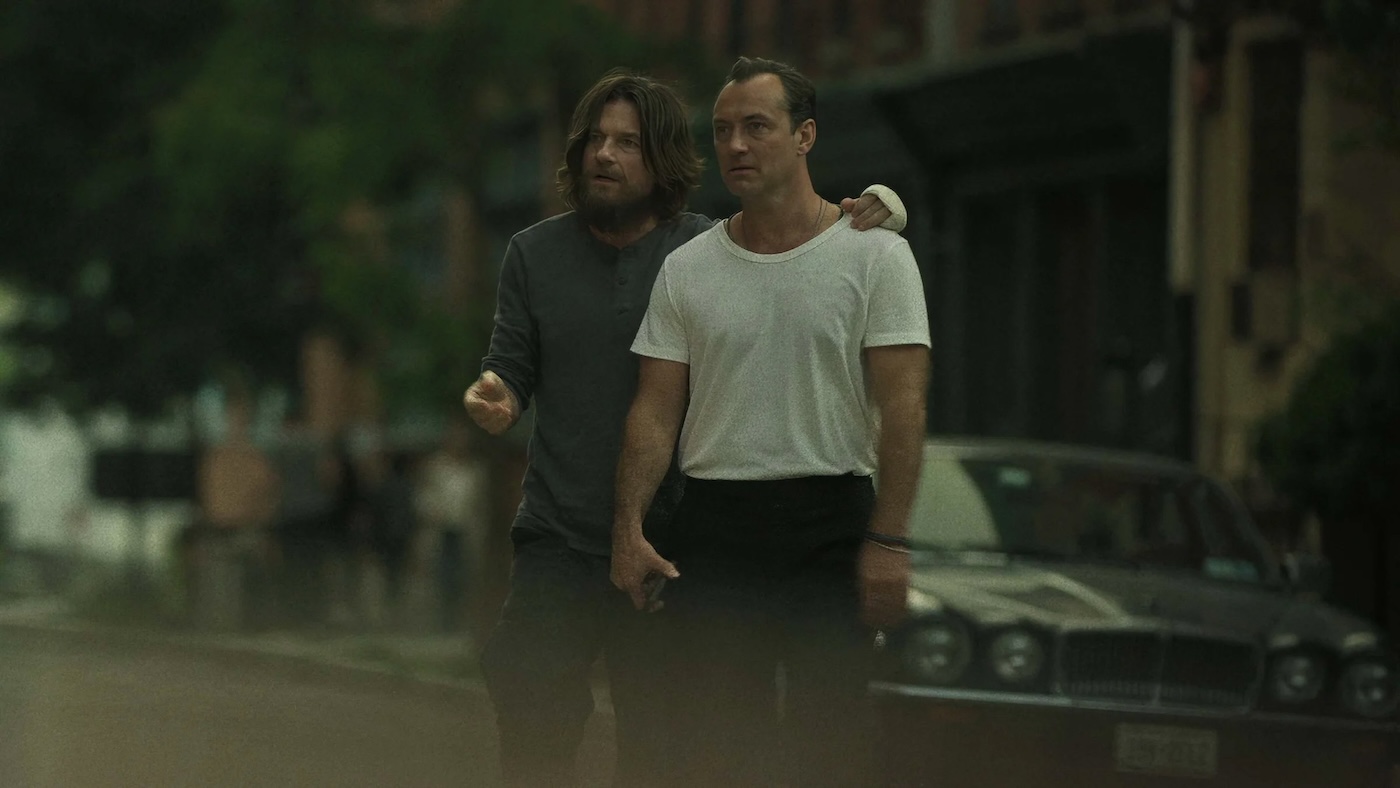
When the owner of a New York City hotspot allows his turbulent brother back in his life, he opens the door to escalating dangers...

A restaurant, two brothers, several controversies, and a diamond heist. Does this combination make Black Rabbit, Netflix’s latest eight-part limited series, the hidden, unexpected gem we didn’t know we needed, or can we leave the all-frills melodramatic thriller without a watch?
Jake Friedken (Jude Law) is the suave owner of the Black Rabbit, a restaurant-bar aiming to become the hotspot for socialites and celebrities, promising elegant food, endless drinks, and the kind of fun that can be swept under the rug. All he has to do is keep his patrons’ bellies full and stuff their egos with praise and his business will thrive.
But enter his brother, Vince (Jason Bateman), who brings far more trouble than expected to the Black Rabbit’s door, sending both brothers down a rabbit hole of betrayal and seemingly endless dangers. This is possibly a recipe for exploring the corruption that comes with ambition, or one that falls on its face in the scramble to make endless threads. Most of us will find a mutual pouring of both toxins into the narrative mix. Either way, the stakes are high and the performances are very strong.
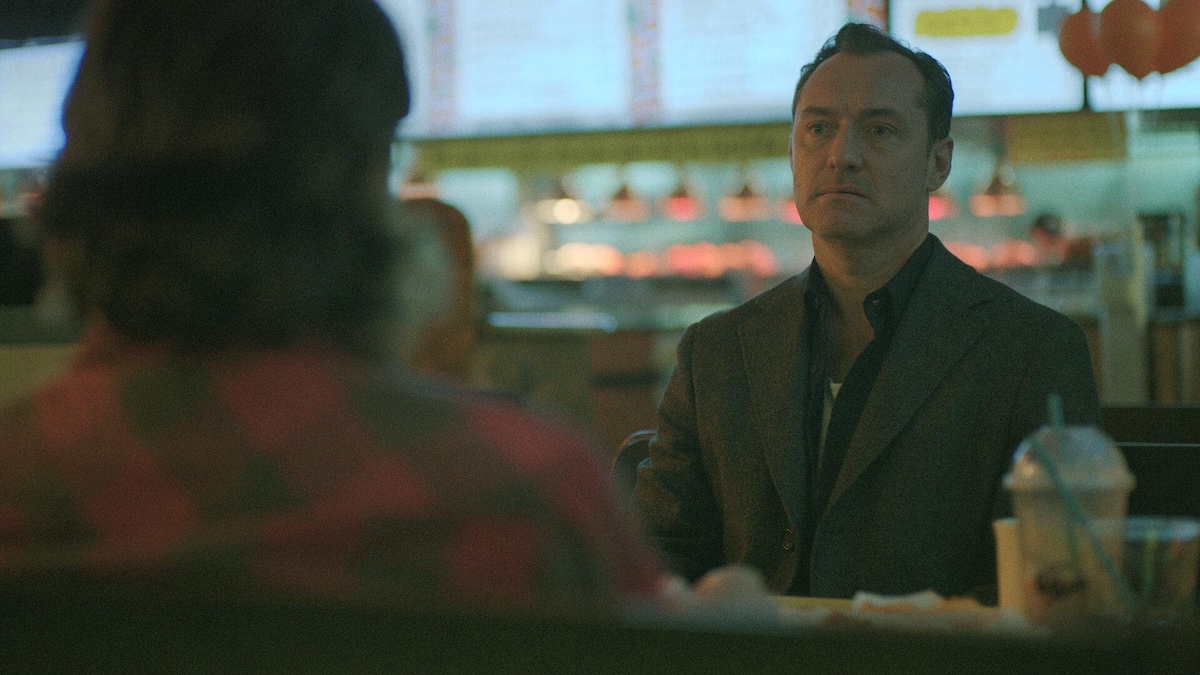
Black Rabbit begins with Jake doing what he does best: entertaining the guests at his restaurant-bar. Outside, two masked men sit in a darkened van snorting powdery courage in the form of cocaine as they case the place. The big event tonight is a diamond jewellery show worth about a million dollars or so. When the two men in the van decide to interrupt the party, threatening to shoot the staff and guests, Jake’s loyalty to his patrons over his ego is truly tested. As one of the gunmen tackles him to the ground and tries to wrestle his gold watch from his bare wrist, which was a gift from his father, Jake stares, shocked, into the shrouded face of one of the two gunmen.
The series is structured around this tense moment, gratuitously shifting from present to past in flashbacks to tell a wider story about pride and corruption concurrent with the pursuit of success. It’s interesting to note that this timeframe disruption is visually distinguishable by Jason Bateman’s evolving haircuts over the years, shifting between what could be defined as “the mullet” and “the caveman” looks. Each has its purpose in Vince’s narrative arc, and it’s lucky someone like Bateman can pull this off with tiny crumbs of grace. Vince is an addict and has an estranged daughter, Gen (Odessa Young), who’s a tattoo artist and wants nothing to do with him.
It’s no big secret that the main reason to watch this series is the back-and-forth between Law and Bateman. Neither a stranger to the gritty crime thriller, their acting ability is the showpiece of dramatic misery we’re in store for over eight episodes. They play so well off each other with equal parts drama and comedy that it would have to be the key selling point of the series’ success. Only these actors are able to inject charm, charisma, and comedy into otherwise unlikeable characters. With his dramatic monologues and comedic timing, Bateman’s able to push Vince a little beyond the screw-up person in Jake’s life. When Bateman’s performance blends comedy and drama, especially in scenes with Odessa Young, we glimpse a redemptive arc that we can understand, even root for, despite his personality and the constant mistakes Vince makes.
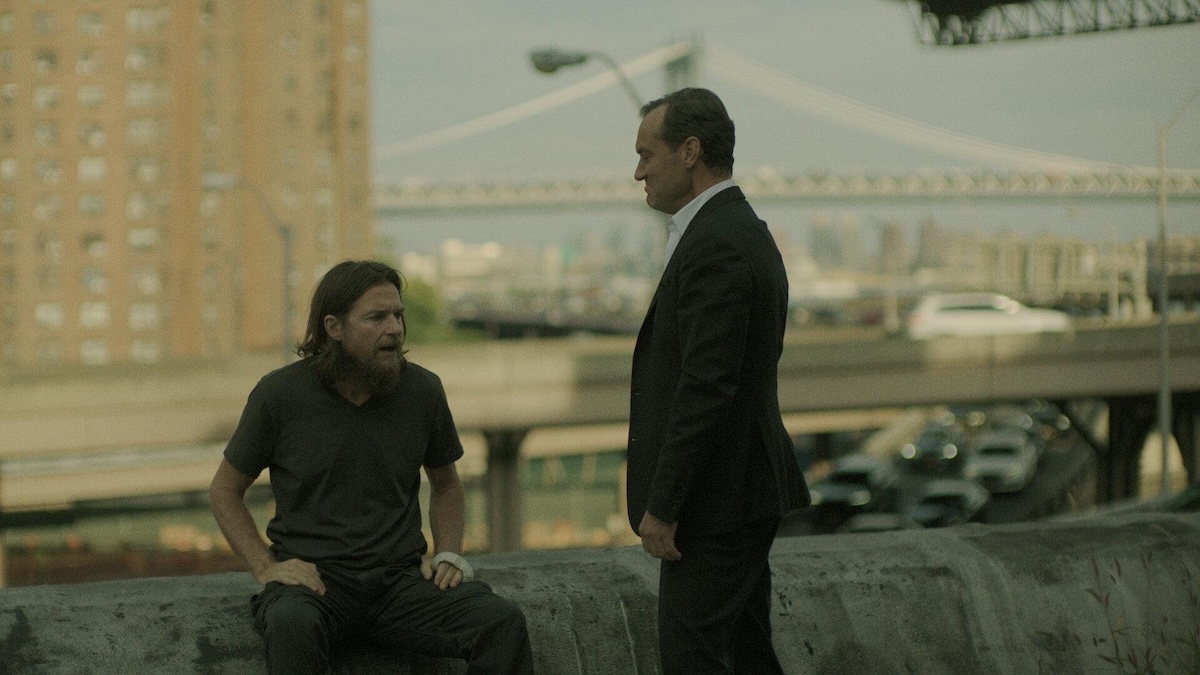
And Law, carrying the weight of Jake’s problems on his shoulders, delivers a performance that reminds us that running a business and living beyond our means creates a myriad of soul-crushing difficulties. Together, the actors and their characters reveal not only the complex relationship between siblings who disappoint but also the fragile nature of loyalty when self-interest clouds our view. Early on in the series, we watch Jake grapple with the mounting demands of running an establishment. You must keep the food and drinks coming. You must open and close every night (even in your fifties). You must pander to your investors even when they rack up tabs that will never be paid. You must expand or close for good. And you must sweep criminal activity under the rug while keeping a smile for the sake of appearances. Doing this while being pursued by dangerous, sign-language-speaking loan sharks in Joe Mascuso (Troy Kotsur), Junior (Forrest Weber), and Babbitt (Chris Coy), we see how far the brothers will go to protect each other and their investments. It makes for an entertaining story that’s not easily forgotten.
In the first episode, Jake prepares the restaurant for a visit from a New York Times food critic. Anna (Abbey Lee), the bartender, refuses to turn up. By skipping out, she pokes a hole in Jake’s greatest achievement. When she’s fired, the series briefly becomes more intriguing. But Anna appears in only a handful of scenes before meeting a grim end, leaving her arc unfinished and her character unexplored, which results in a dissonance with our expectations. At first glance, Anna’s undercut story hints at the corruption lying beneath the success of a growing business, as she becomes another skeleton in the closet. Abbey Lee’s performance merits a little more screen time so we can see a greater range. However, like in Mad Max: Fury Road (2015), she’s cast as the vulnerable woman left in the background, and the series never lets her character grow beyond that.
While the supporting cast are adequate, it’s tough not to question whether their roles are necessary in light of Anna’s absence and, to a similar extent, Vince’s daughter Gen as well. Jake’s love interest Estelle (Cleopatra Coleman) and his business partner Wes (Sope Dirisu) are shallow, decadent examples of what’s wrong with socialite society, as their tiresome love triangle is as needy and irritating as their characters appear to be. The Black Rabbit’s head chef Roxie (Amaka Okafor) and sous chef Tony (Robin de Jesus) are weak representatives of the backstabbing you may find in the culinary field, doing little when Anna’s sexual assault comes to light.
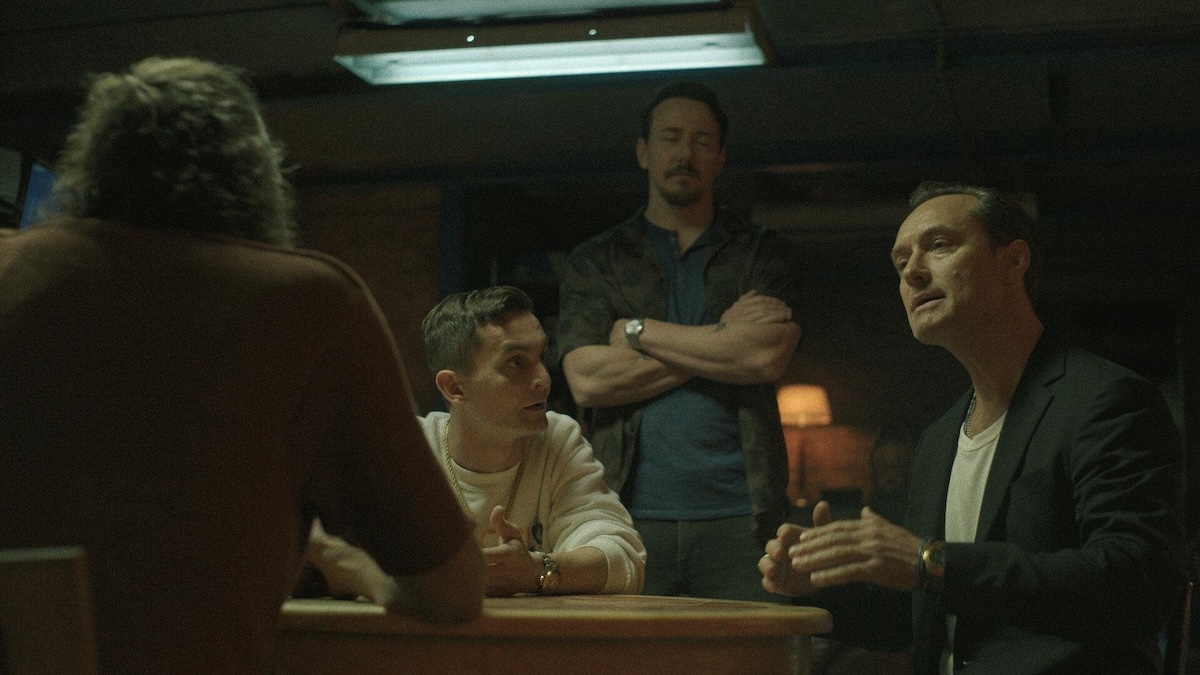
Nevertheless, their stories seem to contribute to the running theme of betrayal by those closest to you—a conflict explored most profoundly by Jake and Vince’s tug-of-war relationship.
While the acting is the series’ greatest strength, the writing also deserves some words of recognition. Zach Baylin and Kate Susman deliver sharp dialogue and an avalanche of tension (not without its stress on viewers), although Bateman seems to get all the clever one-liners, reminding one of his work in the award-winning Ozark (2017-2022). Fittingly, some of the strongest episodes are directed by Laura Linney, Bateman’s co-star from that series. In these episodes, Anna and Gen are shot with compassion and thoughtfulness while not taking away from Jake and Vince’s arcs.
The direction of the plot and the identities of the masked men from the first episode aren’t necessarily that hard to figure out, and Black Rabbit reminded one of Before the Devil Knows You’re Dead (2007)—starring Philip Seymour Hoffman, Ethan Hawke, and Marisa Tomei—which tackled corruption and loyalty in under two hours. Black Rabbit stretches that premise, asking what happens when ambition relies on theft instead of work. The result may feel familiar, but thanks to Law and Bateman’s performances and screenplays that mostly deliver, viewers are likely to find moments worth holding onto.
USA | 2025 | 8 EPISODES | 2.00:1 | COLOUR | ENGLISH • AMERICAN SIGN LANGUAGE

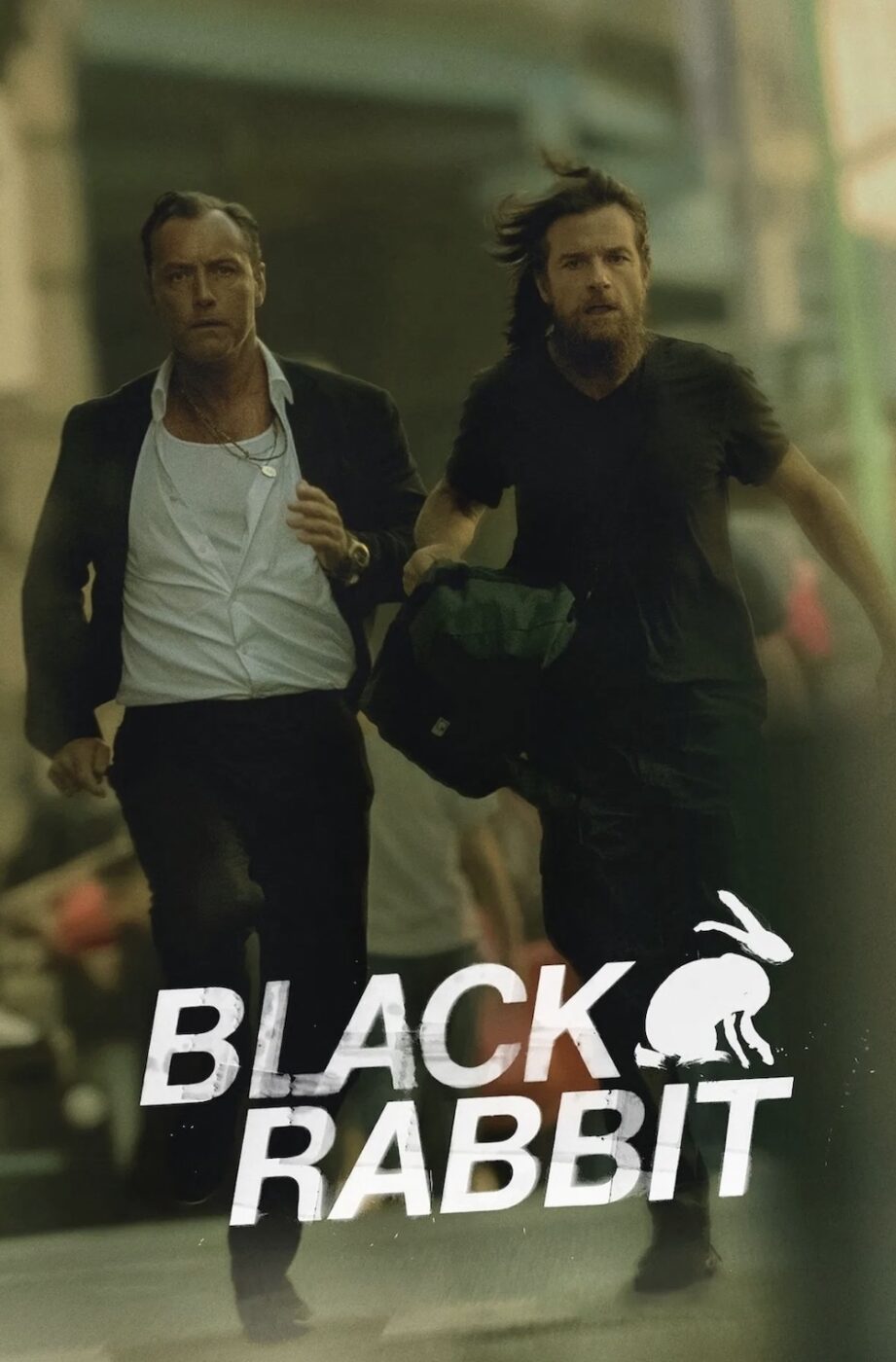
writers: Zach Baylin, Kate Susman, Andrew Hinderaker, Sarah Gubbins, Stacey Osei-Kuffour & Carlos Rios.
directors: Jason Bateman, Laura Linney, Ben Semanoff & Justin Kurzel
starring: Jude Law, Jason Bateman, Cleopatra Coleman, Sope Dirisu, Amaka Okafor & Troy Kotsur.
